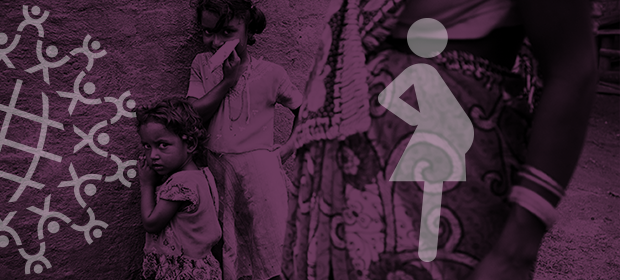Where We Work
See our interactive map


More women and babies in francophone West Africa will have access to integrated services as IntraHealth’s INSPiRE project expands into Guinea. In Guinea, as well as in eight other Ouagadougou Partnership countries in the region, INSPiRE works to integrate family planning, nutrition, and maternal, newborn, and child care. This means providing clients with a comprehensive package of essential health services during each visit—such as family planning and nutrition services and maternal care and infant care—to eliminate missed opportunities for care and make services more accessible for women and babies.
Countries in West Africa have some of the highest maternal and infant mortality rates in the world. Women in Guinea face a 1-in-29 lifetime risk of maternal death and 25 of every 1,000 newborns do not survive their first 28 days. An estimated 23% of women have an unmet need for family planning and 6.1% of children under 5 are affected by acute malnutrition.
So the Ministry of Health and national technical working group for integration developed an action plan and chose the Coyah Health District in Guinea as the pilot site.
IntraHealth’s INSPiRE project will help implement the program’s service integration approach in 28 health facilities, which will help them provide more efficient services and help families who have to travel great distances to health facilities get access to all the care they need."We have the implementation resources already available and adaptable for Guinea."
INSPiRE began in 2017 in three francophone West African countries: Burkina Faso, Côte d’Ivoire, and Niger. “Implementation in these three countries has made it possible for us to draw lessons learned that will be very useful in Guinea,” says Robert Bambara, INSPiRE’s monitoring, evaluation, and learning officer. “It’s also helpful because we have all of the implementation resources already available and easily adaptable for Guinea.”
Using these lessons learned, INSPiRE introduced the service integration approach at the national level to build political will and facilitate implementation. They started with government partnerships and commitments, and then established a national-level technical working group and developed an action plan. But a paradigm shift is still required and stakeholders at all levels, from government and health authorities to the health workers and clients themselves, will have to adapt to a new way of thinking about health services.
"Guinean’s will have better access to high-quality care when & where they need it."
“Evidence shows that this approach has a definite influence on services,” says Bambara.
“Through INSPiRE’s strategies, we’ll be able to improve training, build health worker skills, develop indicators and collection tools, and revise Guinea’s guidelines so that Guinean’s have better access to high-quality health care when and where they need it.”INSPiRE is funded by the Bill and Melinda Gates Foundation in partnership with Helen Keller International, and Institut de Recherche en Sciences de la Santé.



